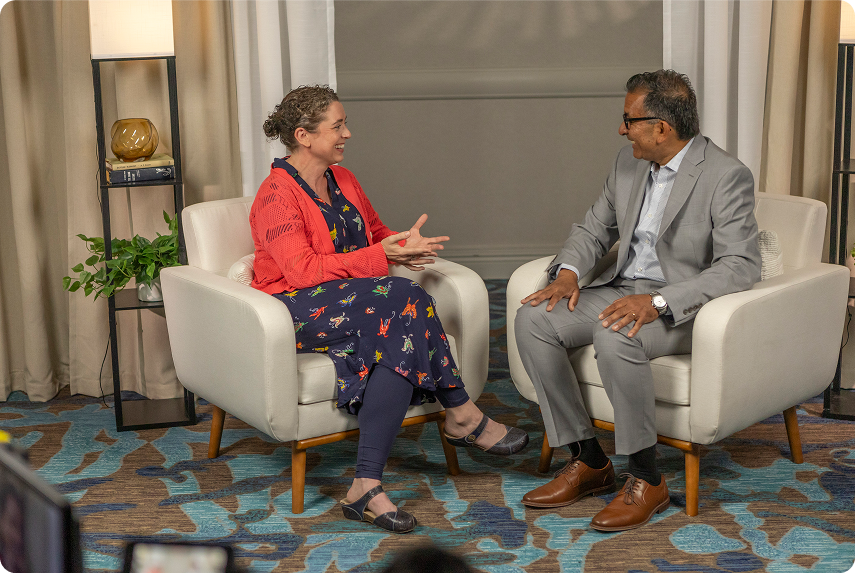Interview Recorded on: August 9th, 2025
Dr. Melissa Wagner describes herself with characteristic humility as "permanently indecisive," though her colleagues might say she's simply permanently curious. This distinguished triple-board certified psychiatrist and neuroscientist at the University of Cincinnati College of Medicine has thoughtfully integrated her interest in pediatrics, psychiatry, and women's health into a comprehensive specialty that represents the future of holistic medical care: reproductive psychiatry.
"I am really practicing as a comprehensive child and adolescent psychiatrist," she explains, "because I'm working with parents during this critical time period to support the family, strengthen bonds, and positively impact the next generation."
This represents preventive medicine with meaningful generational impact.
Understanding the Mental Health Landscape
Reproductive psychiatry addresses mental health during life's significant hormonal transitions: puberty, pregnancy, postpartum, and menopause. Her expertise is increasingly vital, as perinatal mood and anxiety disorders have become the leading cause of maternal morbidity after childbirth—surpassing conditions like gestational diabetes and pregnancy-induced hypertension.
Her practice encompasses a diverse patient population, from typical new parents to society's most vulnerable populations, including pregnant women with serious mental illness who may be hospitalized or incarcerated. Her goal is clear: "Help stabilize symptoms before delivery so patients can actively participate in planning their future and experience meaningful connections with their infants."
Creating Lasting Impact
Dr. Wagner’s approach is built on evidence-based principles: supporting parents creates stronger families. Research shows that depression and anxiety rates remain equal between boys and girls until puberty, when hormonal changes create patterns that continue through pregnancy, postpartum, and menopause.
By providing intervention during these critical windows—particularly the perinatal period—reproductive psychiatrists can prevent challenges from affecting future generations. Treatment often includes fundamental support like ensuring adequate sleep and community resources, making this specialized care accessible even in resource-limited settings globally.
A Model for Modern Medicine
Dr. Wagner’s work exists at a meaningful intersection of multiple specialties, demonstrating that in our era of increasing medical specialization, innovative approaches often come from thoughtful integration rather than narrow focus.
She exemplifies the psychiatrist who understands that supporting children sometimes begins with caring for their parents, and that effective parental support requires understanding the complex hormonal influences that shape mental health throughout life.
















